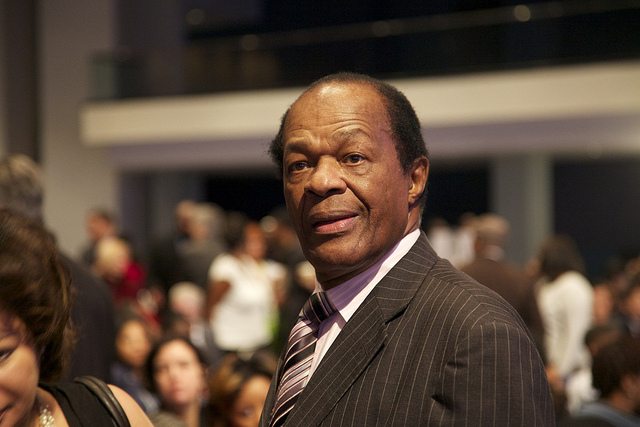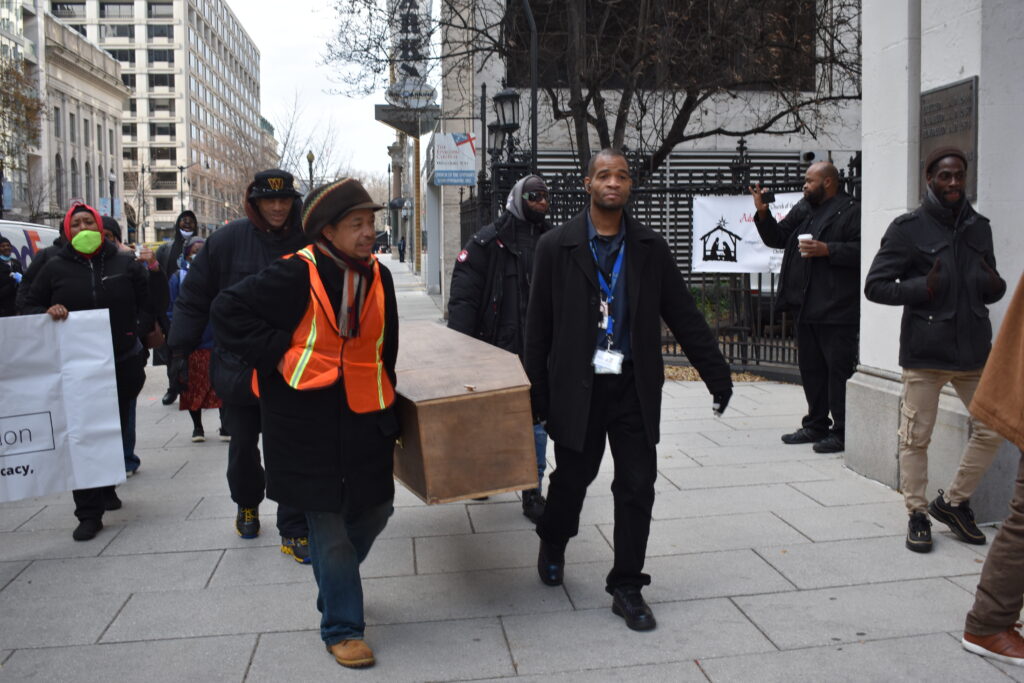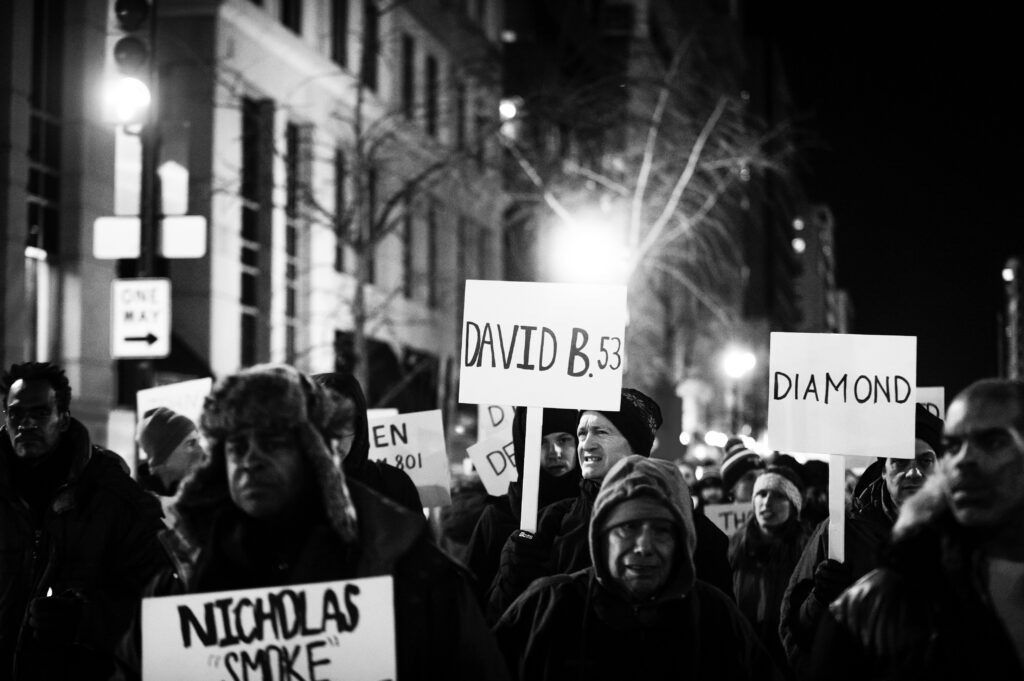Everyone in D.C. has a Marion Barry Story. Mayor-for-Life Barry had an open door, an open heart and
a diehard vision to advocate and take action to help his “last least and lost.” He himself had grown-up poor, struggled to get an education and became involved in the civil rights war in America. Also, Mayor Barry struggled with human error personally and socially. He suffered the consequences with some jail time.
Marion Barry died on a “Black Sunday,” no ordinary day. A day of rest, church and prayer for many.
But this particular Sunday was unique because of the news: the anticipated Ferguson, Missouri verdict, Bill Cosby, President Barack Obama’s executive order for immigrant amnesty, RGIII with the Redskins and Alfonso on “Dancing with the Stars.” Coincidence, maybe – but the news was all Black. The issues were not about race per se or the color of one’s skin. The issues were and are still about actions taken or not taken- possibilities, subjects and ills that all people regardless of race, color or creed do not want to be involved in, talk about or even acknowledge in any shape form or way, except maybe behind closed doors or at the local corral.
What did we learn from the former Mayor? We learned that with experience, education, planning and
working the system as guaranteed by the U.S. Constitution, we can make change. Prior to becoming
Mayor, Barry came to D.C. and with Catfish Mayfield developed an organization called Pride, during the
pre-Home Rule days. He made a name for himself and ran for the only office D.C. residents could vote
for other than the general election for President, the School Board. Later, he would run for city council and win. Walter Washington, the District’s first Mayor, was wavering and had pretty much decided he was not going to stand for re-election. Eventually he changed his mind. However that was not before other candidates appeared on the scene. Barry’s campaign was born out of a dare that he could not win a bid for mayor. The rest is history. Marion Barry, Democrats, grassroots organizations and those who felt disconnected or disenfranchised with the dominant choices, took the reigns of the city.
Those of us who grew up in the sleepy southern town of D.C., with its Jim Crow and unspoken norms
and attitudes of discrimination, were excited. The “Carpetbagger” had come to town, not to steal, but
to instill and create a more equal, open society. He was not afraid and would carry the last battle
straight to the Dixiecrats on the Hill and any other holdover vestiges of ol’ Jim Crow.
Mayor Barry had many successes and some serious eyebrow raising occurrences. We could say in one
aspect his biggest enemy was himself, followed closely by the wanton political manipulators and media.
On the other side, we could say, he did not have enough checks and balances over his appointees and
career bureaucrats. No matter what “good, bad or ugly,” he got the blame, took the blame and kept
moving forward, naysayers and all.
Hilda Mason, a Statehood city council member had great respect for Barry and his vision. If something
was askew, she would often let him know and strongly recommend a better path to get things done.
They both shared a passion to get voting rights for the only U.S. citizens without them: the people of Washington, D.C.
A personal eyebrow raiser was the “Marion Barry Sanity Test.” His administration was politically
aggressive in acquisitioning, solidifying and consolidating anything and everything that was deemed D.C. Government and citizens’ responsibility. The Barry Administration wanted control of St. Elizabeth’s, the mental health treatment facility.
D.C. Government could not financially afford this action, but pushed, pulled kicked and fought the
winning battle. Further, the Feds were not budging on underwriting additional program funding. The
end result was disenchanting to a big degree. Hundreds of residents were allegedly released if they
could pass “the test.” Rumor has that a mental health patient could be released if 1) they knew the meaning of a green and red light, 2) they knew how to brush their teeth and shower, and 3) they knew how to use the bathroom independently. Most people passed the test and were literally put on the streets. Add to this the clearing out of the train track underpass at Union Station that housed many homeless (much to the anxiety of the mental health community and sensible caring DC government managers).
We have had a tough up and down history with mental health, homelessness, housing and poverty ever
since. Should we continue on the same path of political expediency, or should we be redundant and go
back to building strong infrastructures which works toward solutions and near eradication of societal
woes in a human and socially responsible way?
We do know that Barry loved people and would give them the last dime out of his pocket, he loved good
food and a great time and most importantly, he believed in and was a child of God in the name of Jesus. He was not perfect, but believed in forgiveness and redemption for himself and every other human being. He believed in second chances and so advocated for full voting rights for ex-offenders. As they say, “never give up the ship!”
While we might not have liked the publicity and repetitive events in “Hizzoner’s” life, we recognize
the good he did for our city and in remembrance of him, we should continue to advocate for the right
changes and better government to the benefit of all people.








